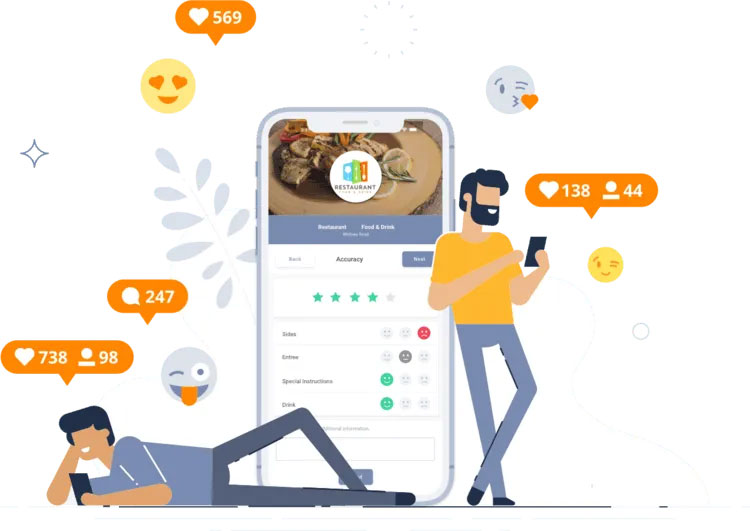How to implement an effective and personalised loyalty program
Published in IT Brief
2 min read
Louie Scarpari : 11/01/2023 12:21:30 PM

Customer experience has always been a key goal if you’re a hospitality business, but over the last 18 months, it just got even more important.
With more business moving to remote online ordering, you’ve had less interaction with your customers and less chance to gauge feedback directly. The pandemic has changed consumers too. A survey by Accenture - in which they talked to 25,000 consumers in 22 countries - clearly heard that customers have re-evaluated their priorities and want to spend their money with businesses whose values align with their own.
That gives you, in the hospitality business, an opportunity to retain and win customers, if you can show that you value their feedback, want to listen and respond to them in a personalised way.
Here’s our take on the top three ways you can engage with your customers, give them the opportunity to provide really specific feedback, and show that you’re listening and using their input to drive change.
1. Loyalty programs are a great way to get to know your customers - particularly in terms of what they buy, when and where. This enables you to personalise your marketing to them, with offers and promotions based on their preferences and habits.
2. Digitised guest feedback - loyalty programs tell you what your customers do, but they don’t give the chance to find out what your customers think. So a great addition to your customer interaction is to offer them the chance to provide specific feedback. The easiest way to do this is via a digitised Customer Experience Improvement (CXI) platform, like Tattle. Put simply, when customers transact with you digitally, they’re invited to provide feedback on their recent experience.
Digitised feedback systems can integrate directly into your point of sale to automate the survey, and have a very high response, with Tattle, for example, seeing a completion rate of over 95%. Sending your customers a survey has two benefits - firstly they can see that you value their opinion, and secondly you get the chance to put right any areas of dissatisfaction.
3. Reputation economy - perception is reality in the world of brand reputation, and perception is heavily influenced by social media. So it’s essential to manage your social media presence, use it to communicate with your customer market and engage with online reviews - positive or otherwise.
It’s all too easy to dismiss unfavourable reviews, or choose to ignore them. But to do so is to miss an opportunity for what could be genuinely valuable feedback, identification of trends and the chance to make changes that would lead to a better customer experience. So be proactive, listen and show that you are listening and value your customers’ opinions.
Businesses that do this well are able to build a community, with genuine engagement that builds advocacy.
Personalisation vs ‘Invasion’
Once you understand your customers, you can tailor your marketing to become even more tailored and personalised, responding to their input. A word of caution though - do make sure you don’t fall into the trap of crossing the line from personalisation to ‘invasion’. If customers provide their feedback to you, it’s important that they don’t feel you are just using that information to bombard them with unwanted marketing material.
Businesses have a duty of care to the data and the consumer. There are strict regulations about what you can and cannot do with customer data, with tough penalties for breaking the rules. In Europe, for example, you must comply with the General Data Protection Regulations (GDPR). In Australia, the Australian Privacy Principles, as laid out in the Privacy Act, set the standard. Wherever you do business, it’s important to understand the governing principles for what data you can collect, and how you can use it to interact with your customers.
Enhancing customer experience
Customer experience has never been more important, as consumers are making more considered choices about where they choose to spend. But by actively listening to feedback, and personalising your response, you can ensure your customers’ experience is nothing but the best.

Published in IT Brief

In the increasingly competitive world of hospitality, businesses are always looking for an edge, for something to set them apart, help beat the...

As we approach a new year, thoughts naturally turn to what lies ahead. Hospitality businesses move into 2023 with some pretty big challenges, but...